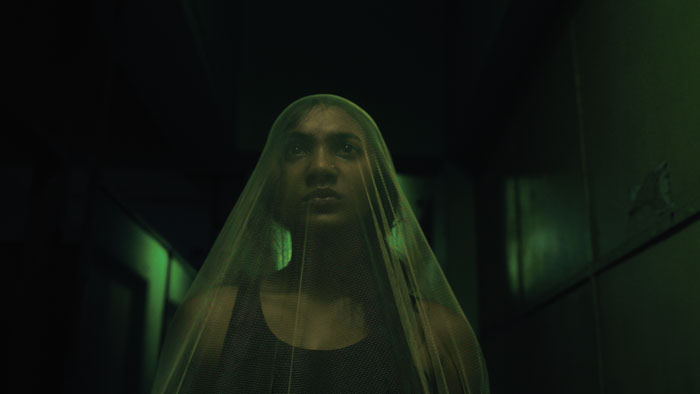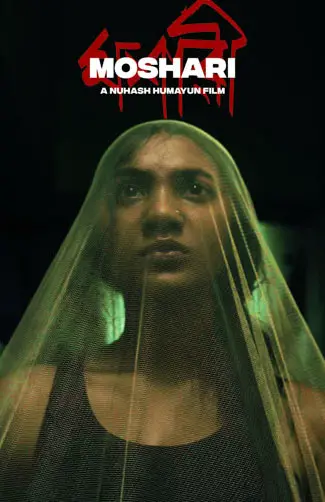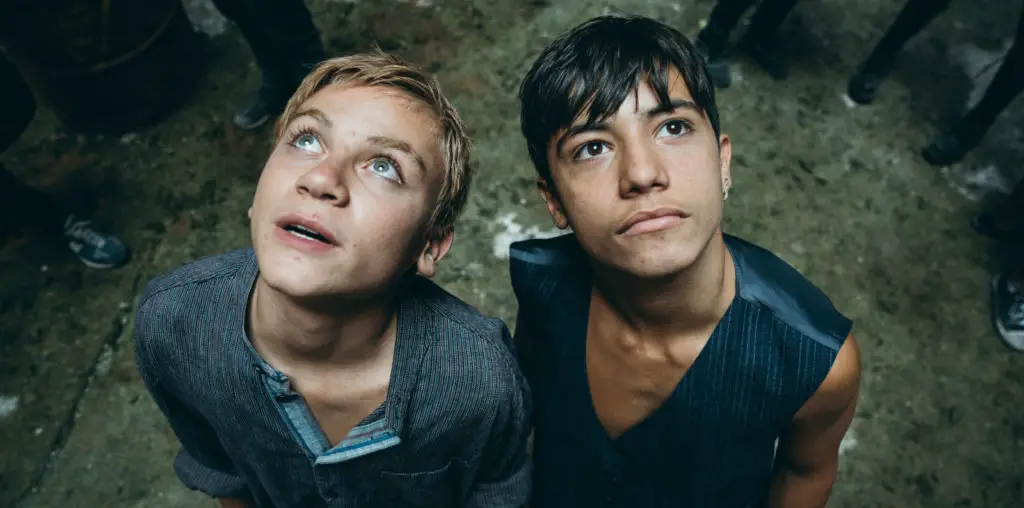
Moshari translates to “mosquito net,” a title that befits this caliginous horror-fantasy venture. Writer-director Nuhash Humayun establishes the dread and trepidation early on with an opening scene of a deceased cow being eaten by mosquitoes. A young girl is seen praying for the cow, but her older sister implores her to stop so they can get going. This exchange alone shows that the sisters don’t have the best relationship.
Elder sister Apu (Sunerah Binte Kamal) reluctantly looks after Ayra (Nairah Onora Saif) in post-apocalyptic Dhaka, Bangladesh, where they must avoid detection from barbarous monsters with an unquenchable thirst for human blood. Unlike more developed countries, the people of Bangladesh have figured out an economical approach to seeking shelter from the creatures: stay inside mosquito nets, and the creatures can’t get to them.
Survival is more difficult for the siblings because their relationship is visibly strained; staying in close proximity to each other evokes familial tension on top of there being bloodthirsty monsters roaming around. Apu has very little patience, lashing out at little Ayra, who doesn’t know any better. The sisters find themselves in a derelict house under a mosquito net. The night doesn’t go as planned as a creature encroaches on their space.
Moshari is an exceptionally haunting and impressively shot short film that feels like a contained story. By focusing on two characters amid a global catastrophe, the narrative feels personal. The world-building and the gloomy atmosphere are handled seamlessly. Marshy, dimly lit locations, unobtrusive exposition, debilitated relations, and an eerie stillness in the air coalesce to depict a reality bereft of harmony.

“The sisters find themselves in a derelict house under a mosquito net…a creature encroaches on their space.”
In terms of horror, the film is genuinely frightening, making full use of grey hues, foreboding music, and sordid locations with flickering lights and broken glass scattered around on the floor. Moreover, the filmmaker toys with the flimsiness and stretchiness of a mosquito net to enliven the creature’s attempts to get the sisters.
There is a sadness to the core sibling relationship that is never probed extensively, but their interactions hold weight. “Come quick, or you’re dead,” Apu tells Ayra, which is only one of several lines of dialogue that reveals more about the characters and their relationship. Apu has an assertiveness that is neither totally necessary nor totally unreasonable, as the rules of survival have changed. Sunerah Binte Kamal is sensational, deftly exuding poise and fortitude with a single, flinty stare. Nairah Onora Saif is just as good, playing opposite Kamal with a softer demeanor.
The most memorable scene unfolds in a hallway; an oblique angle shot reveals the creature as an undaunted Apu prepares to fight. This was the moment that hit powerfully and had an unmistakable impact. Moshari is intrinsically political. Bangladesh is not as developed as the Western World, which Humayun explicitly makes the foundation of his commentary. In doing so, it isn’t absurd to think that less developed countries would be more resourceful when it came to survival on this scale.
In short, Moshari is thrilling, meaningful, and arresting. Eliciting palpable tension and cultural significance in the span of 22 minutes, Humayun proves himself as a notable voice in cinema worth paying attention to.
For screening information, visit the official site for Moshari.

"…thrilling, meaningful, and arresting."


